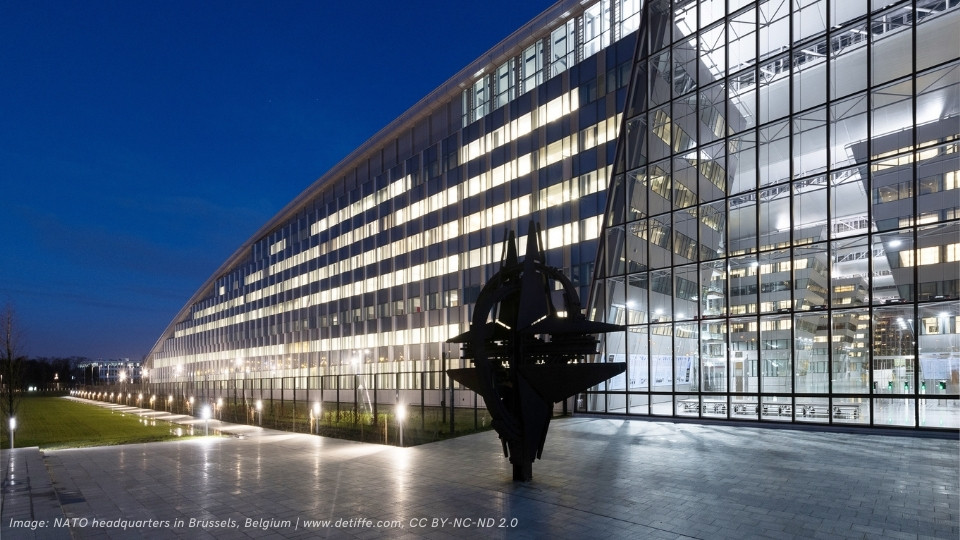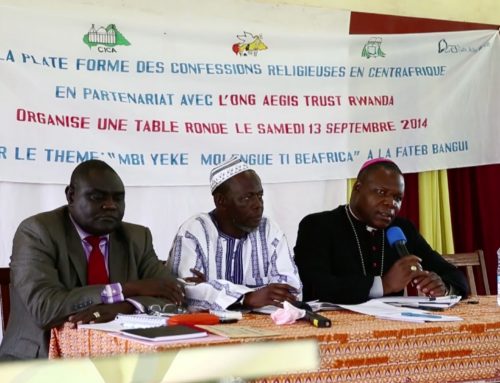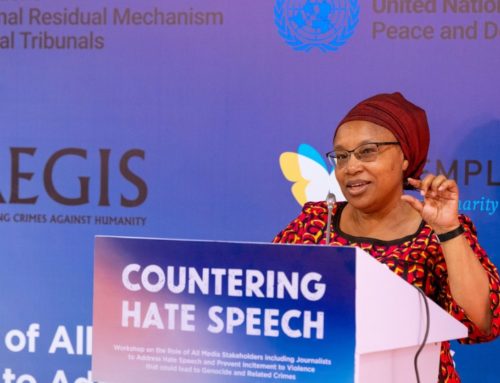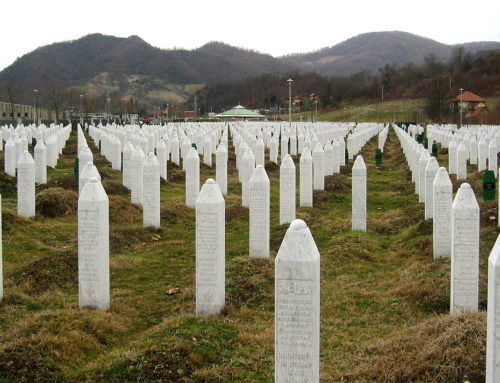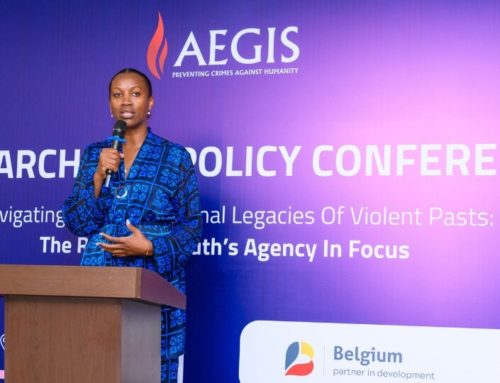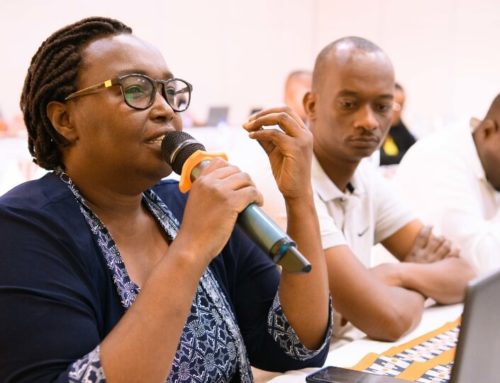The following is an English translation of an interview conducted with Aegis CEO Dr James Smith by Ibrahim Sofić for Aljazeera Balkans, first published by Aljazeera in BHS here.
Ibrahim Sofić: Nationalism, separatism, fascism and other “isms” are very present in BiH and for many the situation is very similar to that of the 1990s. How do you see the developments in this country?
James Smith: Breaking up BiH through unilateral secession risks creating flash points that could ignite conflict and lead to mass atrocities. I see troubling parallels with the period before war in the 1990s. Particularly disturbing is the support for Bosnian Serb nationalists from Serbia and others. Strong Russian support for Dodik is alarming, though unsurprising. Violence and chaos that weaken the EU is in Putin’s interest.
The return of Greater Serb nationalism is a threat not only to Bosniaks and BiH’s stability, but to Muslims in Montenegro, southern Serbia and Kosovo too. I saw its effects as a doctor working with Kosovar refugees in Albania in 1999 – an experience which led my brother and I to create the Aegis Trust to help prevent such mass atrocities in the future.
Sofić: You recently tweeted, among other things, “This time we can’t just express concern. Needs sustained engagement and action from UK to prevent the region returning to war.” Will Britain and the EU do something besides “expressing concern”?
Smith: That remains to be seen. Sadly, for now, we are seeing slow, weak responses to Serb nationalist threats from BiH’s supposed allies. If Dodik is allowed to create his “parallel structures” and reconstitute the RS Army, this will be very hard for the international community to undo. If the international community, especially the EU, US and UK, should have learned anything from last time, it’s that prevention is always better than the cure. Are we willing to see another potentially genocidal conflict unfold? If not then the EU and UK need to act now, before the situation deteriorates any further.
In response to this crisis the Aegis Trust has been working with our partners at the Srebrenica Genocide Memorial and elsewhere to raise awareness and call for stronger peacekeeping and sanctions. The recent Aegis Trust podcast is part of this effort.
We have encouraged Aegis supporters in the UK and around the world to write to their elected representatives about the current crisis. Working with the UK’s All Party Parliamentary Group for Genocide Prevention we have also briefed Members of Parliament to help guide their policy recommendations to the UK government. There are some strong voices in the UK Parliament, such as Alicia Kearns, who is from the Government’s own Conservative Party.
Through all these efforts, we’re encouraging the UK Government to take the steps it should. Remembering Srebrenica is also doing valuable work in this arena too. So far however, the UK Government has not taken even the easiest of actions such as following the US lead on sanctions, which is disappointing.
Meanwhile an already apathetic EU appears paralyzed by the hostility towards BiH and Bosniaks expressed in some EU members state capitals such as Ljubljana, Zagreb and Budapest. That said, Annalena Baerbock’s strong comments, along with the EU Commission’s recent statement condemning the RS leaders and the similar tweets from the EPP this week might indicate a positive change.
Such positive steps won’t have impact, however, unless followed up. The UK’s influence in the EU has dropped sharply since Brexit but a persuasive stance by the UK government could help serve as an encouragement, to Berlin especially.
Sofić: You are also the President and Founder of the National Holocaust Center of Great Britain, how do you see the revival of those forces in the Balkans that follow the doctrines and policies which led to and committed horrific crimes during World War II, especially the Holocaust?
Smith: The Holocaust in the Balkans is poorly understood in the UK. Few school children in the UK know much about this part of the Holocaust or would be able to name Jasenovac as a death camp for example. Perhaps this complexity causes British teachers to avoid it. Yet if studied well, it can help us understand the ideas that contributed to global war and the Holocaust itself.
The Second World War provided cover for the brutal internal wars in the Balkans which led to mass atrocities. The region is still grappling with the legacy of these crimes, such as the genocidal Chetnik massacres of Bosniaks in eastern Bosnia and Montenegro and Partisan crimes against Ustasha and Croat civilians following their capture at Bleiburg.
Whilst all this was happening, agendas of groups in the Balkans often aligned with those of the Nazis, whose aim was to systematically destroy Balkan Jewry along with all Jews of Europe. The history of the Holocaust in the Balkans illustrates how theories of race, constructed by 19th Century European and American thinkers had devastating outcomes in the 20th Century. Aside from placing Jews at the bottom of the racial pile, these ideas informed the Nazi world view that Slavs were Untermensch; sub-human.
The Nazis made an exception for some Slavs, including Croats. Croatian nationalists at the turn of the 20th Century argued that they were higher on the racial ladder than other Slavs, which helped lay the ground for Pavelić’s Ustasha to become important allies of the Nazis.
The Ustasha undertook a breathtakingly brutal genocide of Serbs in Jasenovac, Jadovno and other places in the region. They also did the Nazis’ work for them in murdering Jews and Roma, with little involvement of the Germans. In contrast however, during the occupation of Serbia in WW2 Germans led the destruction of Jews, with Serbian collaborators. Hungarians also murdered thousands of Serbs and Jews in Vojvodina, whilst the German army committed war crimes against Serbs in Serbia.
While the ideology of a Greater Serbia has roots in the final stages of the Ottoman Empire, grievances from the atrocities of the Second World War are a driver of nationalism today. This emphasizes why acknowledging the past and bringing accountability for crimes is essential for long term peace.
Sofić: One of the things they [Serb nationalists] do is deny the genocide in Srebrenica, even though there are verdicts of international courts. Genocide denial and relativization are present in BiH and the region…
Smith: Gregory Stanton’s maxim that denial is an indicator of future genocide must be taken seriously. Denial also includes tactics such as relativizing genocide, which is dangerous because it often blames the victims for being a threat to the perpetrators, implying that they brought mass murder upon themselves. Justifying atrocities as self-defence or a tactic of war heightens risk of repetition in a renewed conflict. All of this constitutes genocide denial, which continues the trauma of genocide for survivors, both in Srebrenica and elsewhere. Celebrating and glorifying the genocide is even worse.
That is why there must be strong support for the work of the Srebrenica Genocide Memorial and its allies in countering these things and why the international community must uphold Inzko’s law punishing denial of the genocide and glorification of the genocidaires and war criminals.
Sofić: What is needed to achieve peace and stability in BiH (as well as in the region)?
Smith: In the short term it is essential to prevent a return to conflict. The EU, US and UK need to listen to the recommendations made by local experts and implement them, including targeted sanctions; the reinforcement of peacekeepers in BiH, stationed either in Tuzla or Brčko; and greater political pressure on Banja Luka and Belgrade. Hopefully, Samantha Power’s upcoming visit to BiH might help in this regard.
It might seem impossible at the moment but in the long term peace can only be achieved by Bosnian Serbs, Bosniaks, and Croats talking together to acknowledge that genocide has taken place and to reach a shared understanding of very difficult pasts; histories which haunt and shape the present. In the meantime, we must continue to refute denial of the Bosnian genocide, and to insist that Greater Serbian nationalism and islamophobia are not tolerated.
The international community also needs to provide sustained support for BiH’s economy, whilst fighting corruption. Poor economic prospects in BiH help to increase community polarisation.
Sofić: The Balkans are not the only region that has problems with nightmares from the past that have revived, the situation is such in most of parts of Europe (the far right, fascism, Islamophobia, antisemitism…). What can these forces do to prevent peacekeeping, both in BiH and in Europe, and how to stop them?
Smith: Horrific events, such as that committed Anders Breivik, should be a warning that far- right movements draw inspiration from Serb nationalism, and shares its islamophobia. Firstly, the growing islamophobia and even open hostility towards BiH and Bosniaks from EU leaders such as Orban, Janša, Milanović and others must be recognized and rejected.
Secondly, we need to recognize how memory of past atrocities can divide communities, causing further cycles of devastating violence. Aegis has spent almost 20 years working in Rwanda now, where a million Tutsis experienced genocide in 1994. Aegis’ peace education model was developed in Rwanda was developed to help work with these memories and is now applied in other countries. It focuses on teaching the facts, to counter denial, the stories of survivors, to help create empathy, and the stories of people who rescued others and stood up against the hatred to build critical thinking and personal responsibility. Such peace education can be used everywhere and builds a common humanity, focusing on what unites us and is one of the ways to counter the threats we’re seeing around the world right now.
Excellent local organisations such as the Sarajevo-based P-CRC and others around BiH who are working to foster a culture of peace, should be supported. Through their inclusive approaches, which echo our own, they provide for everyone in BiH to talk about the past, present and future, for the genocide to be acknowledged and for BiH to move forward to a more peaceful and prosperous future.
Sofić: International Holocaust Remembrance Day is in two weeks, but are the lessons and victims of the Holocaust forgotten today?
Smith: Significant investment has been made to preserve the memory of the Holocaust in former concentration and death camps and sites of killing in Europe. The USC Shoah Foundation maintain an archive of over 55,000 Holocaust survivor testimonies and memorials like the National Holocaust Centre in the UK develop great education programmes.
However, we are far from having learned lessons. Holocaust education has failed to convey how the ideas that drove the Holocaust existed decades before the Nazi party was formed in Germany – and those same ideas are prevalent today.
More also needs to be done in Holocaust education to demonstrate how the combination of dehumanising groups, then propagating fear of them can easily incite violence and genocide. Such ideologies are rampant around the globe.
Remarkable stories from the Holocaust era could be used globally to teach respect for one another. There were brave Albanian Muslims who rescued Jews, as did Croats, Serbs and Bosniaks – such as Derviš Korkut who hid a young Jewish girl and saved the Sarajevo Haggadah.
Instead we see some of the worst examples of how memory can become toxic, used to perpetuate hatred and justify future crimes. Forgetting past crimes does not help recovery, it just leads to memory festering and causes resentment. One of the most simple, powerful thoughts I can leave you with is from my friend, Waldemar Ginsberg, survivor of the Vilna ghetto, who once stated; “what is not acknowledged, cannot be healed.”
So, as long as genocide denial persists, there can be no healing, and that is why we must continue to fight it.
[End of Interview]

